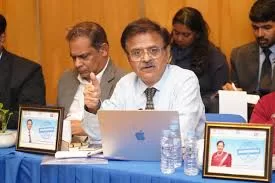Under the aegis of ‘Azadi ka Amrit Mahotsav’, the Government has implemented two phases of awareness campaigns on HIV/AIDS, Tuberculosis and Voluntary Blood Donation. Phase II of the awareness campaign on HIV/AIDS and TB was launched on 12th October 2021. The campaign endeavours to generate awareness regarding the prevention of HIV/AIDS and TB, promotion of related services and reduce stigma and discrimination related to HIV/AIDS and TB.
During Phase, I of the campaign, students from 834 schools and 889 colleges across the country were covered, including 25 schools and 100 colleges in the States of Maharashtra and Tamil Nadu. During the campaign, the students participated in various competitions like painting, online quiz, poster making, signature campaigns, mask making and reel making competitions to generate awareness on HIV/AIDS and TB.
The National AIDS Control Programme (NACP) is implemented by National AIDS Control Organisation (NACO) through State AIDS Control Societies (SACS) by allocating funds to them as grants-in-aid for providing HIV prevention, testing and treatment services. The States including Maharashtra and Tamil Nadu conducted the ‘Azadi ka Amrit Mahotsav’ campaign from grants-in-aid allocated to them for the year 2021-2022.
The awareness campaigns are a continuous process and regular activities are conducted in schools and colleges. The government of India launched National AIDS Control Programme (NACP) to address the HIV/AIDS disease in the country. NACP’s goal is to reduce annual new HIV infections and AIDS-related death by 80% since the baseline value of 2010 and the annual new HIV infections have declined by 48%. The achievement is 82% decline in AIDS-related death.
The key challenges faced in combating HIV/AIDS are stigma and discrimination.
SACS are implementing Adolescence Education Programme in Schools and Red Ribbon Club Programme in Colleges to raise awareness about HIV/AIDS and Out of School Youth programme in the community to engage youth for awareness generation.
The Government of India is implementing a National Strategic Plan (NSP) for Tuberculosis (2017-2025) with the goal of achieving the SDG targets related to TB by 2025, five years ahead of the global target. The key strategies implemented under the National TB Elimination Programme (NTEP) are:
• Early diagnosis of all the TB patients, prompt treatment with quality-assured drugs and treatment regimens along with suitable patient support systems to promote adherence
• Private sector engagement
• Prevention strategies including active case finding and contact tracing in high risk / vulnerable population
• Airborne infection control
• Multi-sectoral response for addressing social determinants related to TB
• Community engagement for a community-led response
• Nutritional support through Nikshay Poshan Yojana
As per the Global TB Report 2021 by the World Health Organisation, the incidence rate for Tuberculosis in India has reduced from 217/lakh population in 2015 to 188/lakh population in 2020.
The key challenges in fighting Tuberculosis are raising the awareness levels of the community, improving health-seeking behaviour of the population and addressing the social determinants of TB.
To raise awareness about TB among youth and adolescents, the National TB Elimination Programme has collaborated with Rashtriya Bal Swasthya Karyakram / Rashtriya Kishor Shakti Karyakram / Red Ribbon Clubs under NACP. Referral linkages for the diagnosis and treatment of TB have been established with these programmes.
The Union Minister of State for Health and Family Welfare, Dr. Bharati Pravin Pawar stated this in a written reply in the Lok Sabha today.











